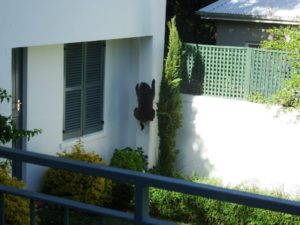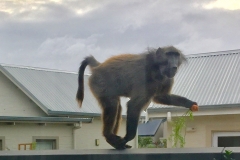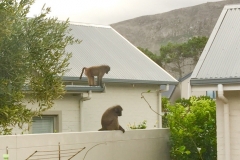- Baboon Management teams have been successful with interventions in Gordons Bay, and many other areas of the Cape Peninsula for several years, working to separate the WILD animals from domestic environments. Statistics indicate a steady increase in the baboon population over time.
- Baboon Action Groups have been formed in the Overberg area, by residents who voluntarily motivate to protect the baboons and discourage dependency on human food. Consistent refuse management is the main focus of the Hermanus Group.
- Some groups favour ‘harmonious co-existence’ with the primates tolerated in suburbia. Others motivate for the primates to be excluded from suburbia and favour limited human interaction, if at all.
- City of Cape Town budgets for ongoing baboon management interventions annually.
- Popular tourist destinations like Cape Point, tend to attract baboons, as they will opportunistically approach tourists holding food items, or easily climb into unsecured vehicles, to raid for food items. City of Cape Town values tourism, and has appointed monitors to ensure the safety of both the baboons and tourists at these sites.
- Awareness campaigns require ongoing emphasis to protect the species from inevitable decline
How do other Western Cape areas manage their baboon issues



